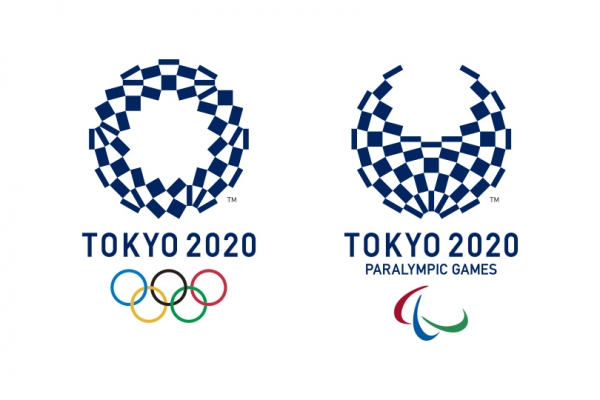
The 2020 Summer Olympics will be held in Tokyo on July 24, 2020. It is recorded to be the fourth Olympic games held in Japan and the second to be held in the capital of Japan, after its first Olympics games 56 years ago. Olympic official site and Tokyo 2020 game organizers advocate that the Tokyo 2020 Sumer Olympics will be “the most innovative ever organized” and that the games are anticipated to win the title as “the most gender-equal Olympics” considering the predicted 48.2% participation of women.
Despite the positive appraises regarding the event, Tokyo 2020 is characterized as ‘controversial’ due to issues regarding the environmental and political factors surrounding modern Japan.
Nine years before the Tokyo 2020 Olympics, Japan suffered from the second most severe nuclear accident in the world. The Fukushima Daiichi Nuclear Disaster, resulting from the Tohoku earthquake, magnitude of 9, and the following tsunami, has earned the title as the world’s second worst disaster and a level 7 classification according to the International Nuclear Event Scale (INES). So far, only two nuclear incidents are ranked level 7 on INES: the Fukushima Incident and the Chernobyl Incident. Due to the radioactive material released during the incident, Japan had to face severe water and soil pollution, putting many Japanese citizens’ health at risk.
Japan, since the incident, has strived to cleanse out radiation from Fukushima and the surrounding regions. However, despite numerous decontamination expeditions and campaigns, the trace of radiation is still evident.
The softball competition is said to be held at Azuma Stadium in Fukuoka. This stadium is only 67km away from the actual incident site, which naturally leads one to concerns regarding the presence of radiation. Lee Sang-heon, a congressman in Korea, has stated that, “even after more than 30 years since the Chernobyl incident, 30km within the incident site is still being tolerated, which makes Japan’s claim that the Fukushima nuclear site is well-controlled nonsensical.” He also adds that when observed with Safecast, a program that allows for observation of radioactivity within Japanese land, the adjacent areas of the Azuma Stadium still show high radioactivity.
When exposed to a high amount of radiation, the human body receives severe damage that can range from nausea, sickness, increase in the chances of developing cancer, to death within weeks of exposure. Considering this, the Olympics may put a huge population – including athletes, audiences, faculty, etc. – in danger.
Also, Japan has been accused of using the Tokyo 2020 Games to gain political advantages. The organizers have uploaded an interactive map on June 1 that shows the pathways for the torch relay on the official website of Tokyo 2020. However, the map, which includes the entire Japanese territory, included and manifested the Dokdo and Kuril Islands as their own rightful territory. Both mentioned islands are lawful territories governed by Korea and Russia respectively. However, Japan has claimed ownership of the two territories and has been engaged in a long dispute with the two countries. Whether Japan’s claim is right or wrong, the use of a globally anticipated event to claim and raise political ideas and purposes is an action that shows disrespect to fellow countries within the dispute and the countries that will participate in the event. Russian Foreign Ministry Spokeswoman Maria Zakharova strongly insisted that such actions of Japan are “illegal” and that “besides the legal side of the matter, [the act of stating Dokdo and Kuril Islands as part of Japanese territory] poisons the atmosphere of addressing complicated issues.” She also showed dissatisfaction and commented that “Tokyo’s desire to politicize such an important international sports event as the Olympic Games and Japan’s apparent abuse of the role of the host country of the Games meant to promote the unity of the people is deeply regrettable.” The Korean government also protested to the Japanese Government and the Tokyo Game Organizers about marking the “East Sea” as “The Sea of Japan” and including Dokdo Island as Japanese territory. The same complaint was made by Japan during the Pyeongchang 2018 Winter Olympics regarding Dokdo island and Korea has accepted Japan’s request and erased Dokdo from the territory maps. However, Japan refuses to do the same for Korea which angered many Korean citizens. Also, Korea has requested the Tokyo Game Organizers to ban the usage of the ‘Rising Sun Flag’, the flag that symbolizes the Imperialism Era of Japan. The very flag was used during World War II by the Japanese military and S. Korea, Japan’s colony during the war, views it as a symbol of Japan’s brutal and inhuman colonial rule of the Korean Peninsula. The Korean government has requested both Japan and the International Olympics Committee (IOC), comparing the ‘Rising Sun Flag’ to the infamous Nazi Swastika, for banning the display of the flag. However, Japan has denied the request completely, insisting that the flag is widely used in Japan and holds no political statement.
Both Russian and Korean citizens were roused by Japan’s improper actions and many have insisted on the boycott of the Tokyo 2020 games.


